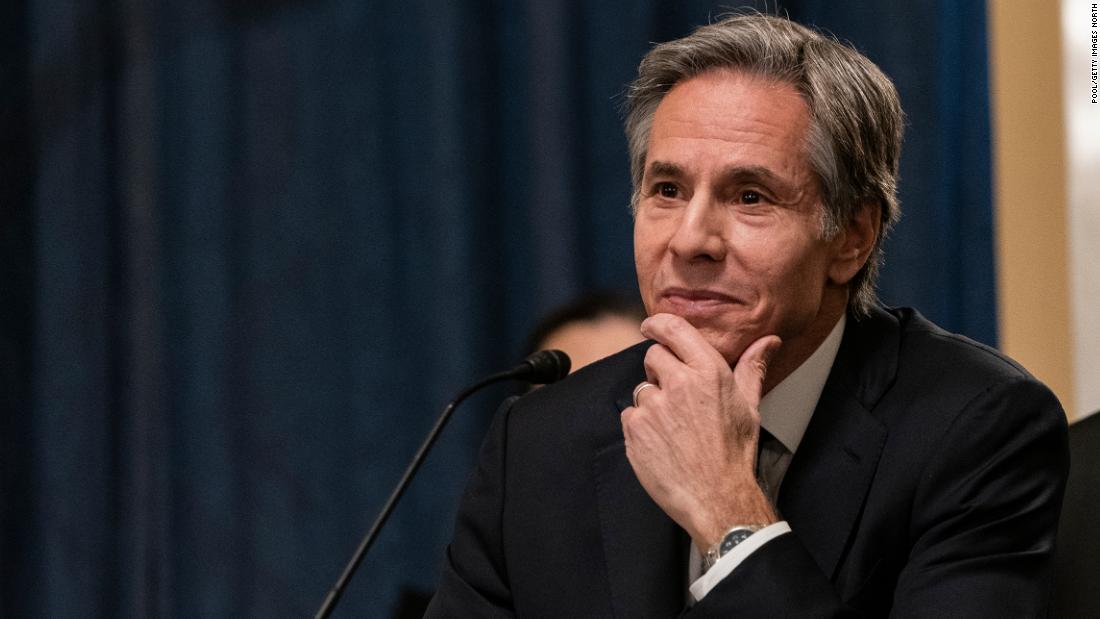“The extension of the New START Treaty makes the United States, allies and partners of the USA and the world safer. Unrestricted nuclear competition would put us all in danger, ”said Blinken.
The treaty – the only one left to regulate the two largest nuclear arsenals in the world – was set to expire on February 5. Russian President Vladimir Putin signed a law extending the treaty for five years on Friday.
President Joe Biden made renewal of the pact a priority when he took office, while launching a review of Russian bad faith ranging from the SolarWinds hack to the alleged rewards Moscow offered for the deaths of American soldiers in Afghanistan.
In a statement, Blinken said that the extension of the New START Treaty allows verifiable limits for Russian intercontinental ballistic missiles, ballistic missiles launched from submarines and heavy bombers until February 5, 2026 and the “treaty verification regime. it allows us to monitor Russia’s compliance with the treaty and provides us with a greater view of Russia’s nuclear stance, including through data exchanges and on-site inspections that allow US inspectors to have an eye on Russian nuclear facilities and forces.
“We will also seek arms control to reduce the dangers of China’s modern and growing nuclear arsenal,” added Blinken. “The United States is committed to effective arms control that increases stability, transparency and predictability, while reducing the risks of expensive and dangerous arms races.”
The top US diplomat noted that “just as we engage the Russian Federation in ways that promote American interests, such as pursuing a five-year extension of the New START and broader discussions to reduce the likelihood of crisis and conflict, we remain attentive to the challenges ahead. Russia represents for the United States and the world. “
“Even as we work with Russia to promote US interests, we will also work to hold Russia accountable for adversarial actions and also for human rights abuses, in close coordination with our allies and partners,” he said.
The United States and its allies have come together to condemn the Russian sentencing of opposition leader Alexey Navalny to two and a half years in prison, a move that will form part of Biden’s review of Russian policy, according to White House spokeswoman Jen Psaki. And European countries, which have access to the information the United States obtains from New START exchanges with Russia, have pushed for the extension of the nuclear treaty.
Coordination and confrontation
The New START Treaty limits both nations to deploy 1,550 nuclear warheads in 700 launch systems, including intercontinental ballistic missiles, submarine-launched ballistic missiles and bombers. It also allows 18 on-site inspections every year, which allows each side to keep an eye on the capabilities of the others.
The nuclear treaty is one of a series of issues that the Biden government will have to address or potentially coordinate with Russia, including efforts to sanction North Korea and ensure stability in Afghanistan – issues that the president must first consult with allies. Also on the discussion list with the allies: the question of the management of sanctions against Russia for its annexation of Crimea.
Biden must also take into account suspicions that Moscow is behind a series of mysterious sonic attacks on American diplomats abroad, reports that Russia has secretly offered rewards to Afghan militias to kill American soldiers and Moscow’s interference in the campaign. 2020 election.
Perhaps most worrying is that Biden also has to deal with the suspicion that Russia may be behind one of the biggest and most sophisticated cyber attacks in recent years, which has hit major U.S. companies and agencies across the government, including the Departments of Homeland Security, Agriculture and Trade. American officials also acknowledged that the hack covered key national security agencies, including the Pentagon, intelligence agencies and the State Department.
